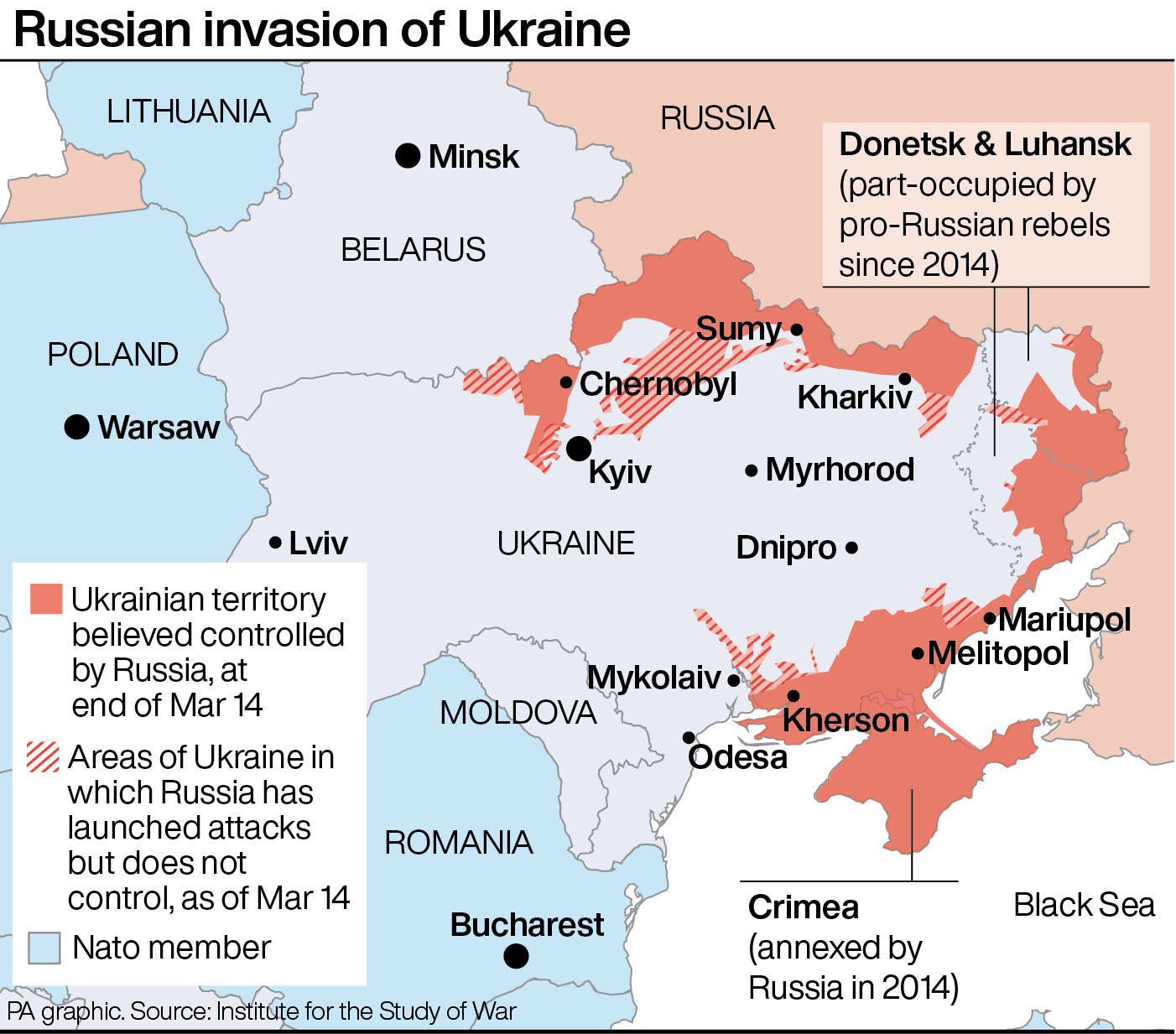Will taking in a Ukrainian refugee affect your council tax and benefits?
UK government’s belated scheme to support those fleeing conflict in Eastern Europe criticised for lack of clarity on key points
More than three million people have fled Ukraine since Vladimir Putin launched his military assault on the country on 24 February, according to the United Nations.
The exodus has seen asylum seekers spilling over into Poland, Hungary, Slovakia, Romania and Moldova to escape the brutal Russian shelling of their cities, with the UN Children’s Fund reporting that one child per second is finding themselves displaced as a result of the invasion.
While British citizens have been deeply moved by the courage and resilience of the Ukrainian people in their hour of need and been more than generous in donating funds and emergency supplies to help the refugees, Boris Johnson’s government has been bitterly criticised for not doing enough to welcome them to these shores.
Levelling up secretary Michael Gove finally announced the Homes for Ukraine scheme on Monday, which permits individuals, charities, community groups and businesses to house people fleeing war, providing them with a safe haven even if they have no prior ties to the UK.
According to the government, the first phase of the scheme will allow sponsors in the UK to nominate a named Ukrainian or Ukrainian family to stay with them in their own home.
Individual sponsors will be asked to provide homes or a spare room rent-free for as long as they are able, with a minimum stay of six months.
In return, they will receive £350 per month as a “thank you”.
Ukrainians arriving in Britain as part of the initiative will undergo security checks before arrival and then be granted three years leave to remain and entitled to work and to access benefits and public services.
Since the launch of the scheme’s official website, more than 122,000 people have already registered their interest ahead of the application process opening on Friday 18 March.
Mr Gove said “tens of thousands” of refugees could come to Britain via the scheme and revealed that local authorities would receive £10,000 for each Ukrainian refugee sponsored in their area.
However, charities and opposition parties have expressed concern about the “slow and cumbersome” offer, with the Refugee Council saying the government is putting too many “bureaucratic hurdles” in the way and suggesting the scheme “will inevitably be restricted to those who are known to people in the UK”.
Labour’s shadow levelling up secretary Lisa Nandy also ridiculed the “matching up” process to bring together hosts and refugees, telling LBC: We’re asking people to ask to take to social media at a time they’re fleeing a war zone. This is a serious crisis – it’s not an online dating situation.”
Among the questions people are seeking an answer to is whether taking part in the scheme will have an adverse impact on how much council tax they pay.

Mr Gove’s Department for Levelling Up, Housing and Communities has said in a statement that: “We do not intend participation in the scheme to impact the amount of council tax a resident will pay.”
It added: “We will discuss single occupant council tax discounts with councils.”
As for whether the receipt of £350 a month as part of the scheme will affect any other state benefits any individual might receive, Labour MP Clive Betts posed that exact question to refugees minister Richard Harrington during a Home Affairs Select Committee evidence session on Wednesday.
“Can we have an assurance that it will not affect people in any way in anything they can get from the government, for example where they may have a child going to university who might be eligible for a grant?” Mr Betts asked.
In response, Mr Harrington said: “I’ve been assured that is absolutely the case, it’s not treated as family income, it won’t affect rights to universal credit, it won’t affect council tax where there’s a discount for a single person, that sort of thing. That’s our intention and that’s what all the negotiations have been. It’s not additional income.”
Both Mr Gove and transport secretary Grant Shapps have said they intend to sign up to the scheme, as has the acclaimed actor Benedict Cumberbatch.
The Independent has a proud history of campaigning for the rights of the most vulnerable, and we first ran our Refugees Welcome campaign during the war in Syria in 2015. Now, as we renew our campaign and launch this petition in the wake of the unfolding Ukrainian crisis, we are calling on the government to go further and faster to ensure help is delivered. To find out more about our Refugees Welcome campaign, click here. To sign the petition click here. If you would like to donate then please click here for our GoFundMe page.
Join our commenting forum
Join thought-provoking conversations, follow other Independent readers and see their replies
Comments


Bookmark popover
Removed from bookmarks